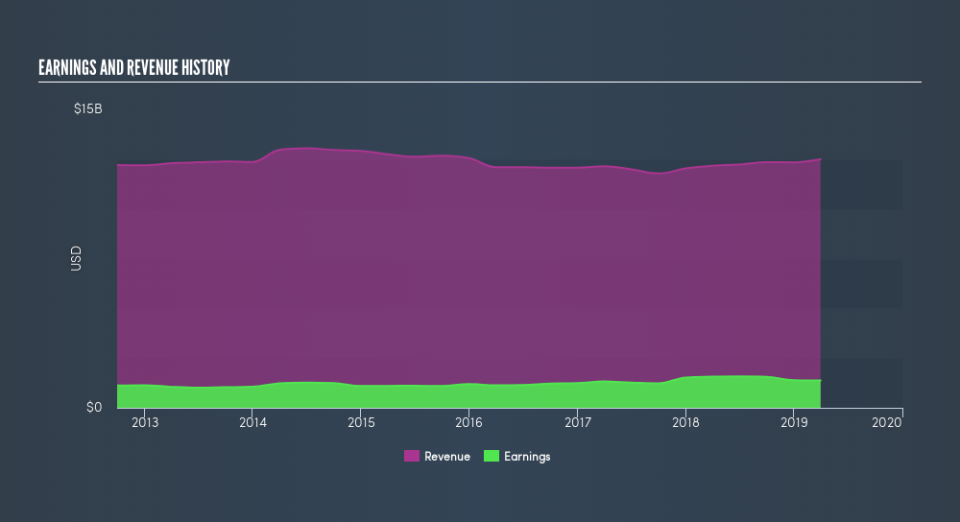Where Consolidated Edison, Inc.'s (NYSE:ED) Earnings Growth Stands Against Its Industry

Want to participate in a short research study? Help shape the future of investing tools and you could win a $250 gift card!
Investors with a long-term horizong may find it valuable to assess Consolidated Edison, Inc.'s (NYSE:ED) earnings trend over time and against its industry benchmark as opposed to simply looking at a sincle earnings announcement at one point in time. Below is my commentary, albiet very simple and high-level, on how Consolidated Edison is currently performing.
Check out our latest analysis for Consolidated Edison
Was ED's recent earnings decline worse than the long-term trend and the industry?
ED's trailing twelve-month earnings (from 31 March 2019) of US$1.4b has declined by -12% compared to the previous year.
Furthermore, this one-year growth rate has been lower than its average earnings growth rate over the past 5 years of 5.9%, indicating the rate at which ED is growing has slowed down. Why could this be happening? Well, let's look at what's occurring with margins and whether the whole industry is facing the same headwind.
In terms of returns from investment, Consolidated Edison has fallen short of achieving a 20% return on equity (ROE), recording 8.0% instead. Furthermore, its return on assets (ROA) of 3.9% is below the US Integrated Utilities industry of 4.5%, indicating Consolidated Edison's are utilized less efficiently. And finally, its return on capital (ROC), which also accounts for Consolidated Edison’s debt level, has declined over the past 3 years from 5.7% to 5.0%. This correlates with an increase in debt holding, with debt-to-equity ratio rising from 100% to 117% over the past 5 years.
What does this mean?
Though Consolidated Edison's past data is helpful, it is only one aspect of my investment thesis. Companies that are profitable, but have unpredictable earnings, can have many factors affecting its business. I recommend you continue to research Consolidated Edison to get a more holistic view of the stock by looking at:
Future Outlook: What are well-informed industry analysts predicting for ED’s future growth? Take a look at our free research report of analyst consensus for ED’s outlook.
Financial Health: Are ED’s operations financially sustainable? Balance sheets can be hard to analyze, which is why we’ve done it for you. Check out our financial health checks here.
Other High-Performing Stocks: Are there other stocks that provide better prospects with proven track records? Explore our free list of these great stocks here.
NB: Figures in this article are calculated using data from the trailing twelve months from 31 March 2019. This may not be consistent with full year annual report figures.
We aim to bring you long-term focused research analysis driven by fundamental data. Note that our analysis may not factor in the latest price-sensitive company announcements or qualitative material.
If you spot an error that warrants correction, please contact the editor at editorial-team@simplywallst.com. This article by Simply Wall St is general in nature. It does not constitute a recommendation to buy or sell any stock, and does not take account of your objectives, or your financial situation. Simply Wall St has no position in the stocks mentioned. Thank you for reading.

 Yahoo Finance
Yahoo Finance 
